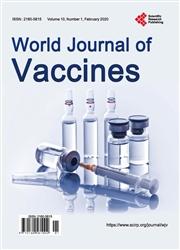Distinct Cytokine Profiles in Patients with Oligoarticular Juvenile Idiopathic Arthritis after in Vitro Blockade of Interleukin (IL)-1 and Tumor Necrosis Factor (TNF)-α
引用次数: 0
Abstract
Oligoarticular juvenile idiopathic arthritis (oJIA) is an antigen-driven and lymphocyte-mediated autoimmune disorder with irregularity in the adaptive immune system. Auto reactive T cells, activated by cartilage-derived auto antigens, produce pro-inflammatory cytokines as IFN-γ and IL-17. Failure of regulatory T cells leads to decreased anti-inflammatory cytokine IL-10 production and results in the loss of immune tolerance. This activation of innate and adaptive immunity stimulates the release of pro-inflammatory cytokines IL-1, IL-6 and TNF-α. Thus, inhibition of these cytokines is considered as an appropriate therapeutic strategy for oJIA. The aim of this study was to investigate whether the blockade of a single cytokine pathway in the present cytokine setting causes an unfavourable imbalance in the cytokine system or whether the blockade is sufficient to suppress the inflammatory condition. We examined the cytokine secretion after in vitro inhibition of IL-1 and TNF-α of patients with oJIA and healthy subjects. This single center cohort study consisted of oJIA affected children and control subjects. Cytokine profiles from cell culture supernatants were examined with multiplex fluorescent bead immunoassay by flow cytometry. Adalimumab prevents highly effective and very selective effect of the cytokine TNF-α. Due to its structure, the mode of action of etanercept is difficult to display. In addition, adalimumab and etanercept appear in vitro suppressive to IFN-γ. The efficiency of both substances is particularly supported by the increased secretion of anti-inflammatory cytokine IL-4. In contrast, anakinra unselectively inhibits the pro-inflammatory macrophage cytokines. To conclude, our observations suggest that inhibition of IL-1 or TNF-α may contribute to the unselective decline of other pro-inflammatory cytokines in oJIA patients. The selective anti-inflammatory effect of cytokine inhibitors is most likely supported by an increase of IL-4 or IL-10. It still remains to be elucidated whether the reduced IFN-γ secretion is maybe causative for the increased susceptibility to infections with opportunistic pathogens.白细胞介素(IL)-1和肿瘤坏死因子(TNF)-α体外阻断后少关节幼年特发性关节炎患者的不同细胞因子谱
少关节幼年特发性关节炎(oJIA)是一种抗原驱动和淋巴细胞介导的自身免疫性疾病,具有适应性免疫系统的不规则性。自身反应性T细胞被软骨源性自身抗原激活,产生促炎细胞因子如IFN-γ和IL-17。调节性T细胞的失败导致抗炎细胞因子IL-10的产生减少,导致免疫耐受的丧失。先天免疫和适应性免疫的激活刺激促炎细胞因子IL-1、IL-6和TNF-α的释放。因此,抑制这些细胞因子被认为是治疗oJIA的合适策略。本研究的目的是研究在当前的细胞因子设置中,单个细胞因子通路的阻断是否会导致细胞因子系统的不利失衡,或者阻断是否足以抑制炎症状况。我们检测了oJIA患者和健康人体外抑制IL-1和TNF-α后细胞因子的分泌情况。本单中心队列研究由oJIA患儿和对照组组成。用流式细胞术检测细胞培养上清的细胞因子谱。阿达木单抗阻止细胞因子TNF-α的高效和选择性作用。依那西普的结构决定了其作用方式难以展示。此外,阿达木单抗和依那西普在体外对IFN-γ有抑制作用。这两种物质的效率都特别支持抗炎细胞因子IL-4的分泌增加。相反,阿那金无选择性地抑制促炎巨噬细胞细胞因子。总之,我们的观察结果表明,抑制IL-1或TNF-α可能导致oJIA患者其他促炎细胞因子的非选择性下降。细胞因子抑制剂的选择性抗炎作用很可能是由IL-4或IL-10的增加所支持的。IFN-γ分泌减少是否可能是导致机会致病菌感染易感性增加的原因仍有待阐明。
本文章由计算机程序翻译,如有差异,请以英文原文为准。
求助全文
约1分钟内获得全文
求助全文

 求助内容:
求助内容: 应助结果提醒方式:
应助结果提醒方式:


